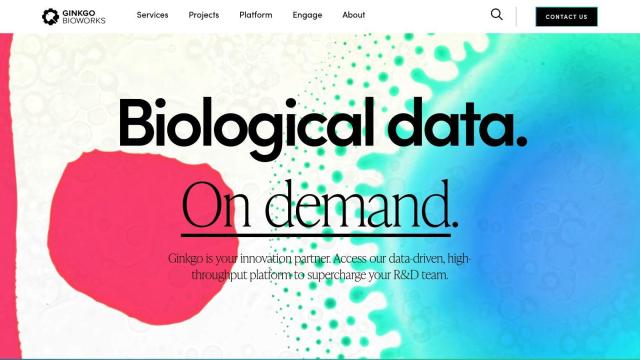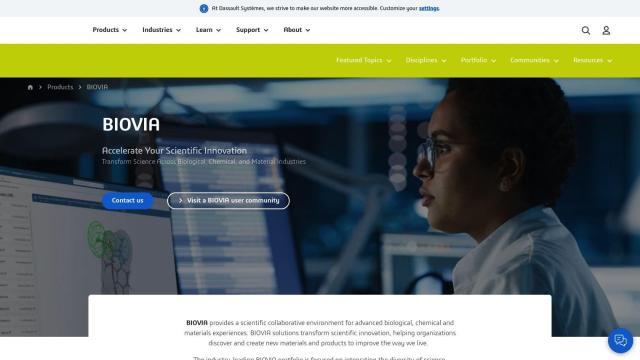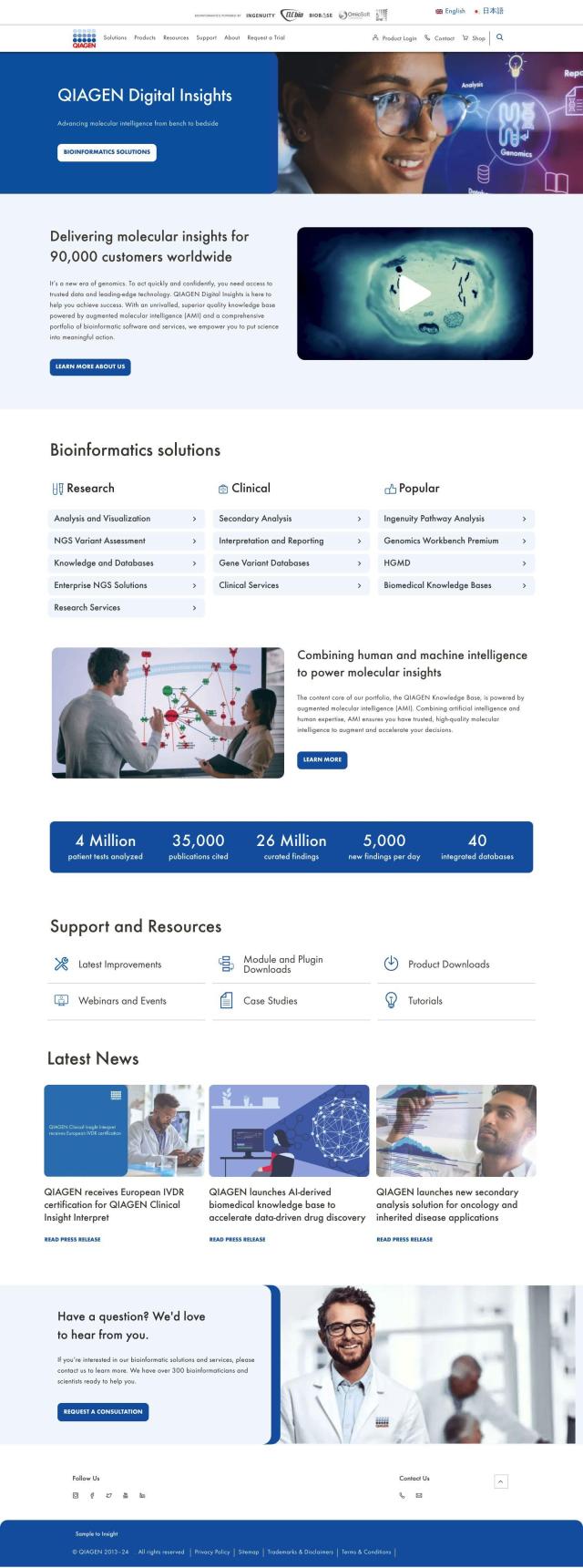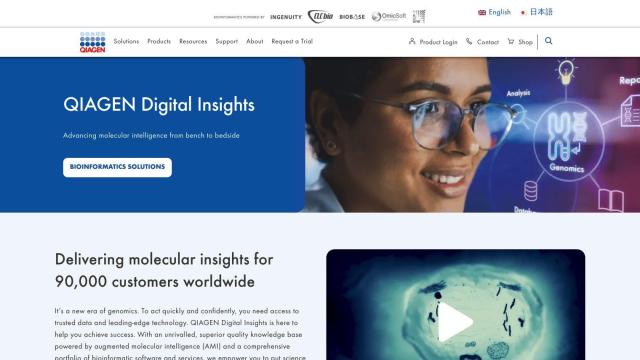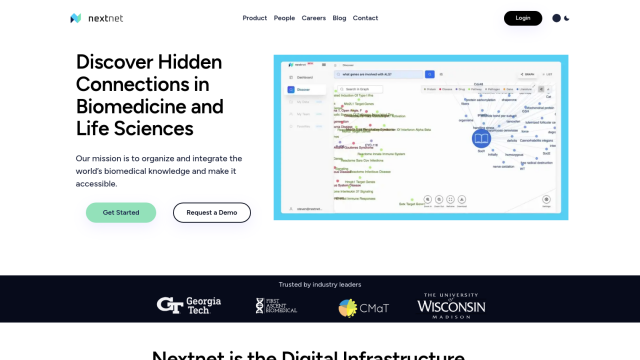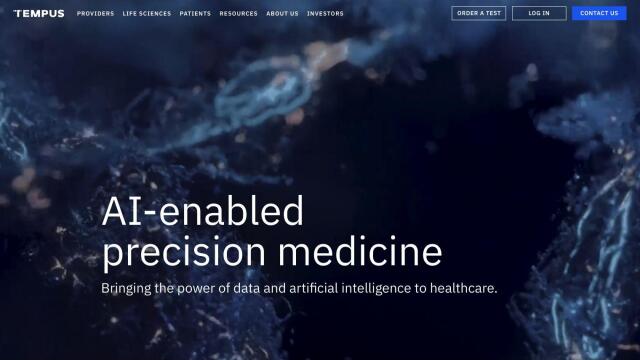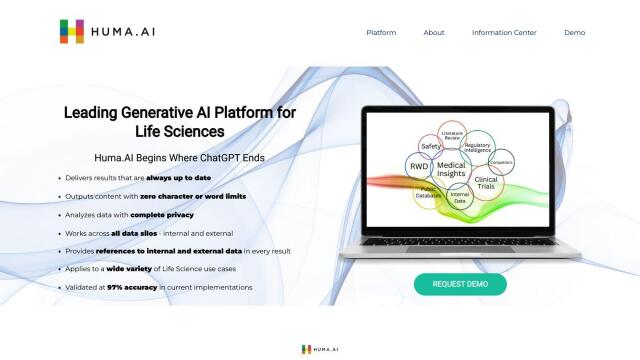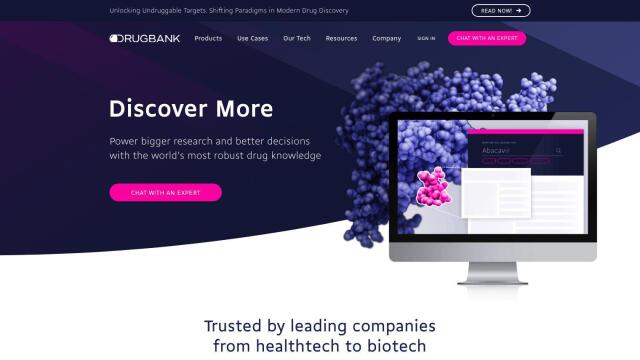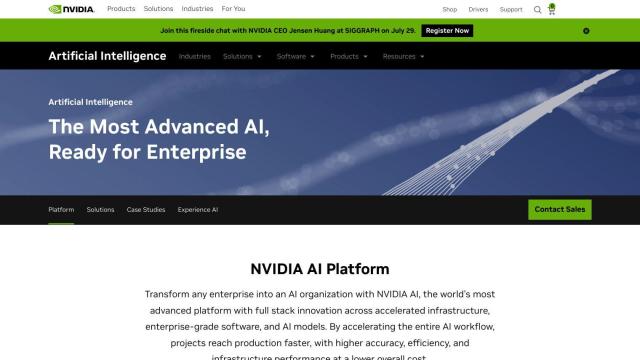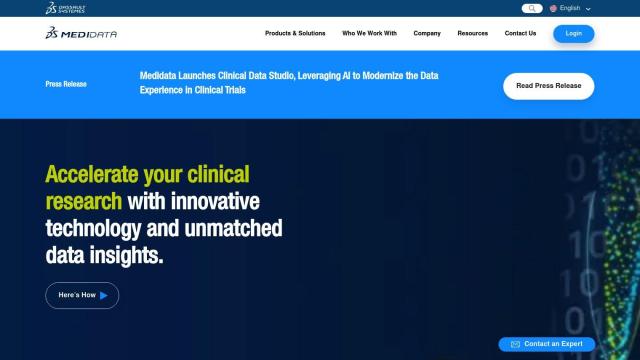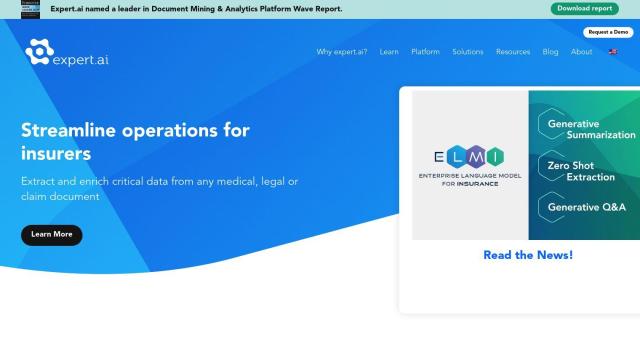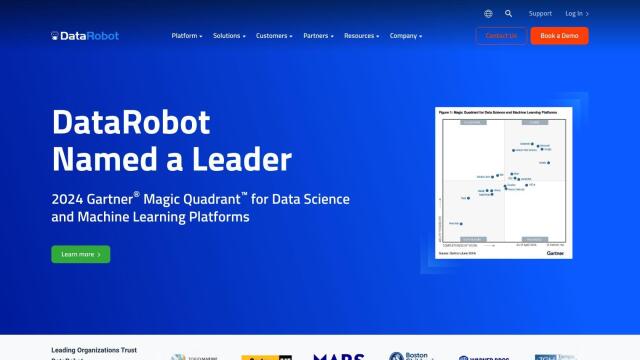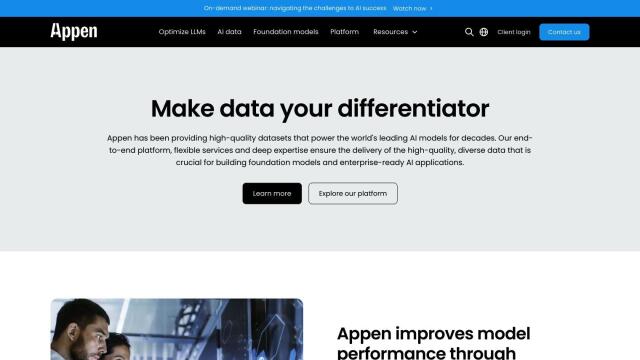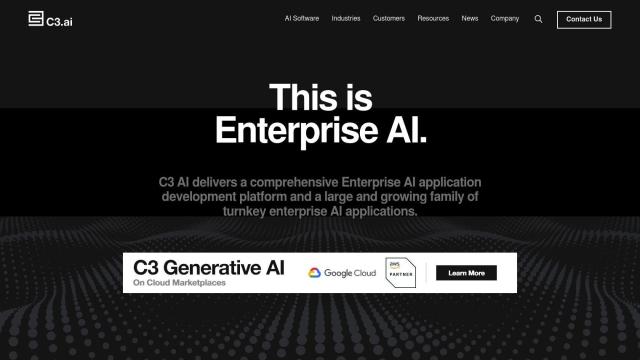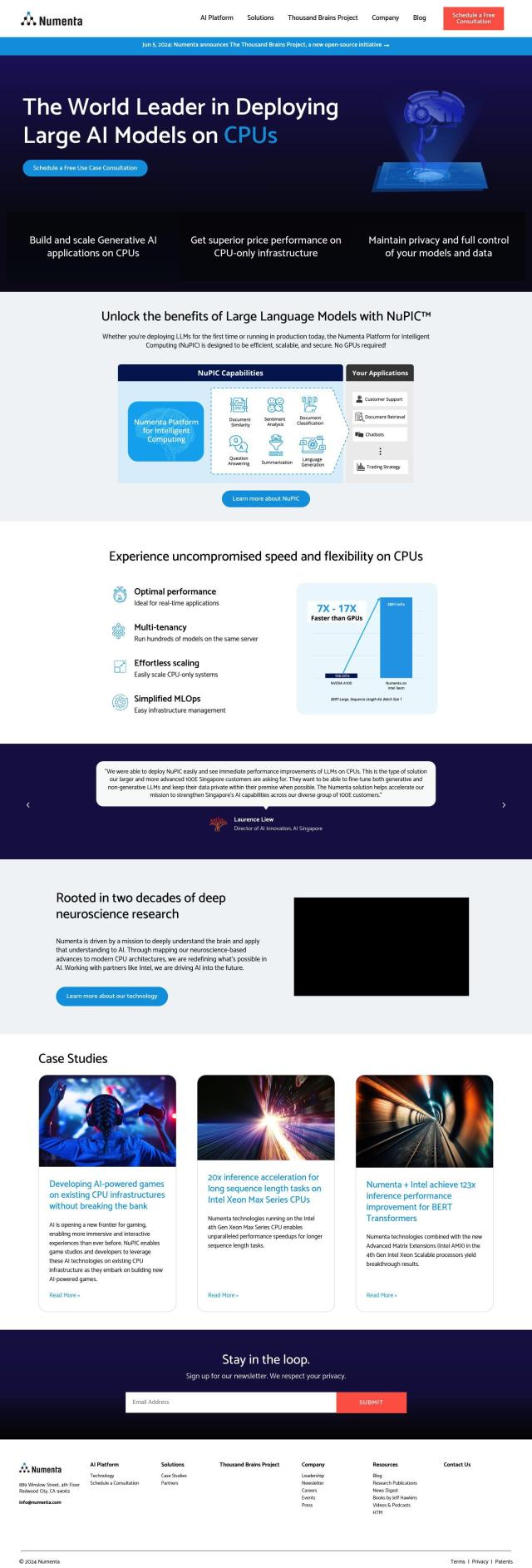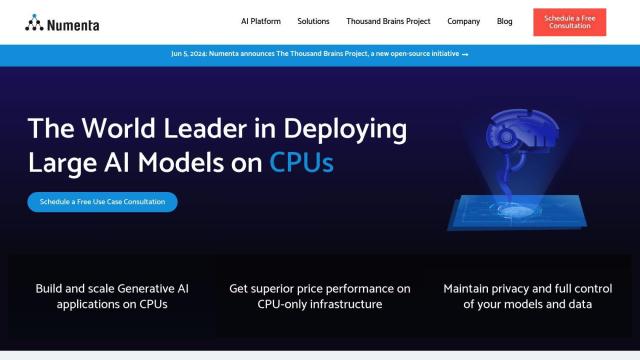Question: Can you recommend a platform that uses AI to accelerate the discovery of new protein targets for drug development?

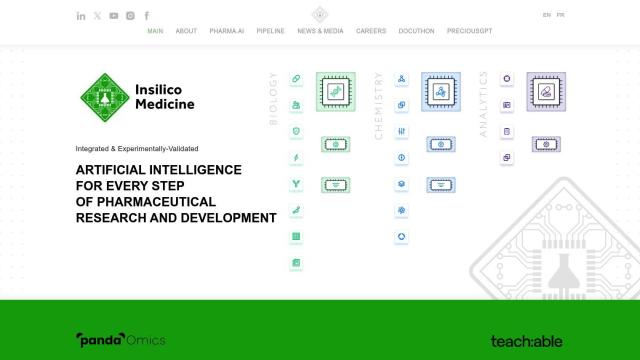
Insilico Medicine
For accelerating the discovery of new protein targets for drug development, Insilico Medicine has a powerful AI-powered platform. It accelerates target identification, molecule design and prediction of clinical trial outcomes. Its suite includes PHARMA.AI for fully integrated drug discovery software, PandaOmics for OMICs data analysis, Chemistry42 for generative AI and physics-based methods in small molecule drug discovery, and inClinico for predicting clinical trial success rates. The platform can cut the time and expense of traditional drug discovery methods.

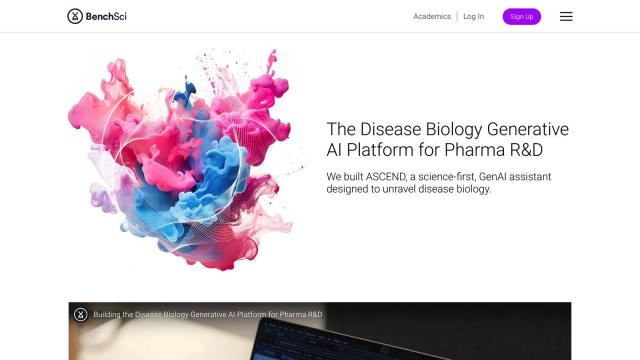
BenchSci
Another useful tool is BenchSci, which offers an AI-powered information retrieval system called ASCEND. It's for pharmaceutical and biotech R&D organizations, with a large data foundation, multimodal AI for interpreting experiments, and integration with internal data. ASCEND can help improve the speed and quality of drug discovery by helping with experiment decision-making and reducing experimental failures.
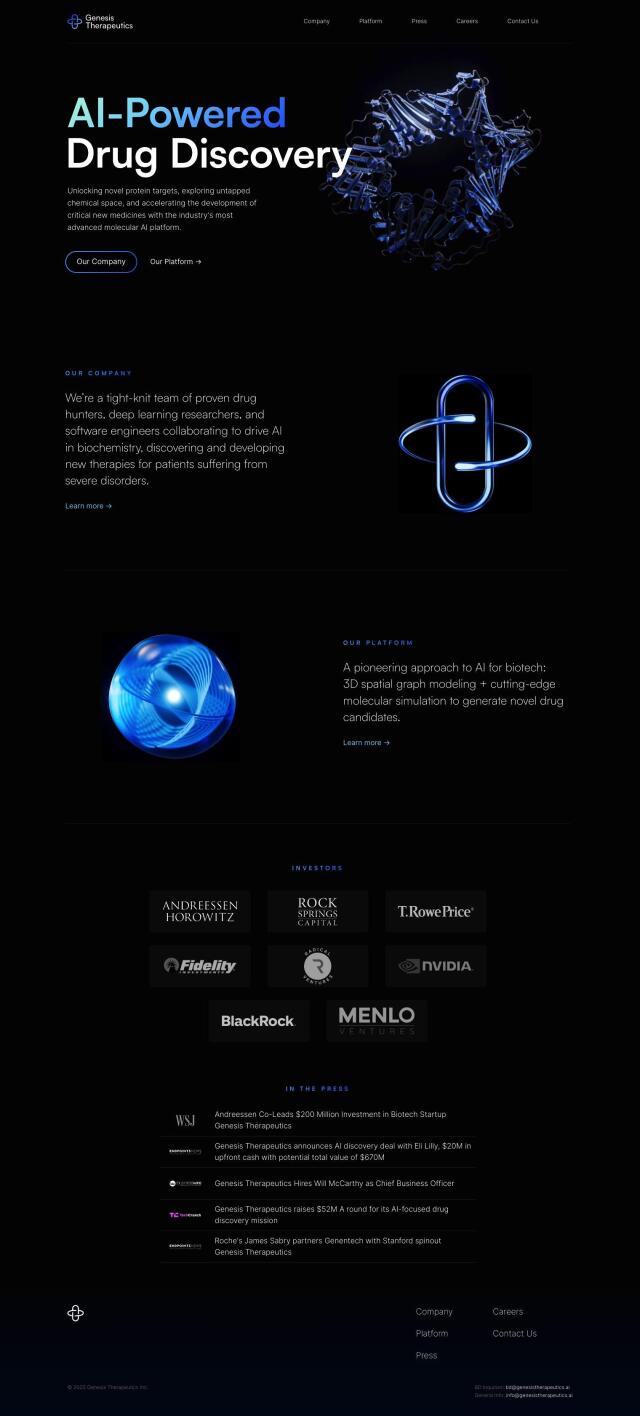
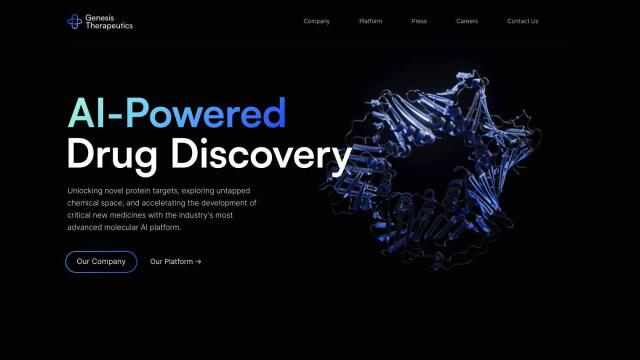
Genesis Therapeutics
Genesis Therapeutics has a molecular AI platform called GEMS that uses 3D spatial graph modeling and molecular simulation to generate new drug candidates. It combines deep learning for predicting properties and molecular simulations for predicting binding dynamics. The result is designed to rapidly develop high-potency and selective small molecule drugs for challenging biological targets, which can help address serious diseases.

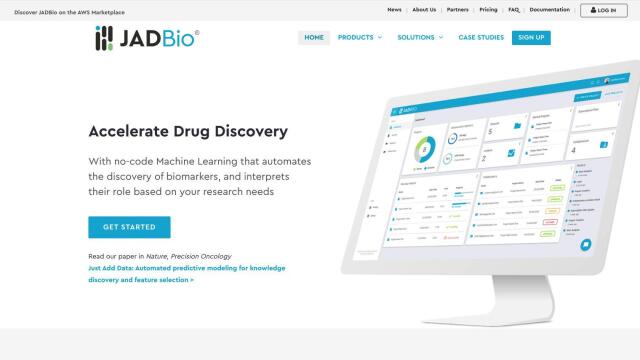
JADBio
For automating biomarker discovery and interpretation, JADBio offers a no-code machine learning platform. It processes multi-omics data to enable biomarker discovery, disease subtype identification and patient treatment response assessment. JADBio is particularly useful for early biomarker discovery and disease monitoring, which can be useful for accelerating drug development.

